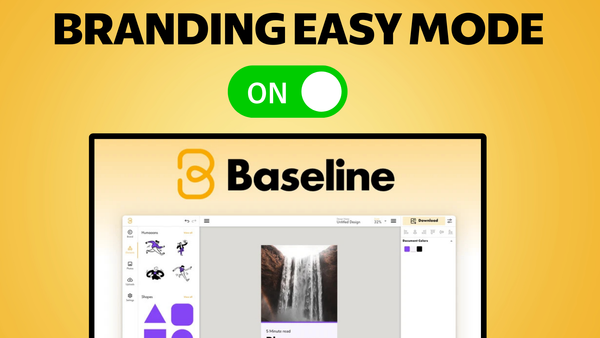Where $1M+ Course Creators Launch | LMS Platforms Decoded
Discover the best platforms for launching million-dollar online courses - from marketplaces to open-source solutions. Find your perfect match!

Introduction
In the digital age, online courses have emerged as a lucrative opportunity for individuals to monetize their knowledge and expertise. This comprehensive guide delves into the world of online course platforms, exploring the various options available to course creators and the potential for substantial income generation. We’ll examine the three primary types of platforms: marketplaces, all-in-one hosted solutions, and open-source options, with a particular focus on WordPress and LearnDash.
Throughout this guide, we’ll uncover the pros and cons of each platform type, helping you make an informed decision about where to launch your online course. Whether you’re a seasoned educator or a newcomer to the world of digital learning, this in-depth analysis will provide valuable insights into the landscape of online course creation and distribution.
Join us as we explore the intricacies of these platforms, their features, and how they can impact your success as an online course creator. By the end of this guide, you’ll have a clear understanding of the options available and be better equipped to choose the right platform for your unique needs and goals.
Get LearndashIntro [00:00]
The concept of online courses has revolutionized the way people share and acquire knowledge. With the potential to generate significant income, many individuals are drawn to the idea of packaging their expertise into digital products. However, the journey from concept to successful course launch is not without its challenges.
The Appeal of Online Courses
- Monetizing Knowledge: Online courses offer a unique opportunity to turn your existing knowledge and skills into a profitable venture.
- Scalable Income: Unlike traditional teaching methods, online courses can be sold to thousands of people simultaneously, creating the potential for substantial earnings.
- Real-World Success: The narrator, who manages websites for successful course creators, has witnessed firsthand the six and seven-figure annual incomes generated through online courses.
- Accessibility: The barrier to entry for creating and selling online courses has significantly lowered, making it accessible to a wide range of individuals.
Common Challenges
- Platform Selection: With numerous options available, choosing the right platform to host and sell your course can be overwhelming.
- Marketing and Visibility: Standing out in a crowded marketplace and attracting students to your course can be challenging.
- Technical Hurdles: Depending on the chosen platform, course creators may face various technical challenges in setting up and managing their courses.
- Content Creation: Developing high-quality, engaging course content that provides value to students is a crucial aspect of success.
As we delve deeper into the various platform options, we’ll address these challenges and provide insights to help you navigate the world of online course creation and distribution.
Marketplace [00:58]
Marketplace platforms have emerged as popular destinations for both course creators and learners. These platforms, such as Udemy and Skillshare, offer a centralized location where courses on various topics are aggregated and made available to a large audience.
Benefits of Marketplace Platforms
- Built-in Traffic: Marketplaces attract a significant number of users actively searching for courses, providing potential exposure to course creators.
- Low Barrier to Entry: Most marketplace platforms allow creators to upload their courses for free, eliminating upfront costs.
- Discoverability: Courses can be found through the platform’s search functionality, potentially reaching students without additional marketing efforts.
- Established Credibility: Being associated with a well-known platform can lend credibility to your course, especially for new creators.
Challenges of Marketplace Platforms
- Intense Competition: The popularity of these platforms means there’s a high volume of courses, making it difficult to stand out.
- Search Result Ranking: Achieving a high ranking in search results is crucial for visibility but can be extremely challenging.
- Limited Control: Creators often have less control over pricing, promotions, and student data compared to other platform types.
- Revenue Sharing: Marketplaces typically take a significant percentage of course sales, which can impact profitability.
Case Study: Udemy
To illustrate the competitive nature of marketplace platforms, let’s examine the example of selling a knitting course on Udemy:
- Search Results: A search for “knitting” on Udemy yields 183 results, indicating a saturated market.
- Review Disparity: Top-ranking courses often have hundreds of reviews, while lower-ranking courses may only have a handful.
- Visibility Challenges: Courses on subsequent pages of search results receive significantly less visibility and, consequently, fewer enrollments.
Strategies for Success on Marketplace Platforms
- Niche Selection: Look for underserved topics or unique angles within popular subjects to differentiate your course.
- Quality Content: Focus on creating high-quality, engaging content that encourages positive reviews and word-of-mouth recommendations.
- Keyword Optimization: Research and utilize relevant keywords in your course title and description to improve search visibility.
- Leverage Existing Audience: If you have an existing following, direct them to your marketplace course to boost initial enrollments and reviews.
While marketplace platforms offer the allure of a built-in audience, success often requires a combination of excellent content, strategic positioning, and a bit of luck in finding an underserved niche.
All in One [02:43]
All-in-one hosted platforms have gained popularity among course creators looking for a comprehensive solution to launch and manage their online courses. These platforms, such as Kajabi and Thinkific, offer a wide range of features designed to streamline the course creation and selling process.
Key Features of All-in-One Platforms
- Course Hosting: These platforms provide a dedicated space to host and deliver your course content, including videos, quizzes, and downloadable resources.
- Website Builder: Many all-in-one solutions include tools to create a professional-looking website to showcase your courses and brand.
- Sales Funnel Creation: Built-in funnel builders help you create effective marketing campaigns to attract and convert potential students.
- Email Marketing: Integrated email marketing tools allow you to communicate with your audience and nurture leads.
- Community Features: Some platforms offer community-building tools to foster engagement among students.
- Payment Processing: Seamless integration of payment gateways enables easy course sales and subscription management.
Advantages of All-in-One Solutions
- Convenience: Having all necessary tools under one roof simplifies the course creation and management process.
- Time-Saving: With pre-built templates and integrated features, you can launch your course more quickly.
- Reduced Technical Burden: These platforms handle most technical aspects, allowing you to focus on content creation.
- Scalability: Many all-in-one platforms offer tiered plans that can accommodate growing businesses.
Potential Drawbacks
- Limited Customization: While convenient, these platforms may not offer the level of customization some creators desire.
- Feature Limitations: As your business grows, you might find certain features inadequate for your specific needs.
- Cost: Monthly fees for all-in-one platforms can be substantial, especially for advanced features.
- Lock-In Effect: Migrating your course and student data to another platform can be challenging and time-consuming.
Considerations When Choosing an All-in-One Platform
- Feature Evaluation: Carefully assess the features offered and ensure they align with your current and future needs.
- Scalability: Consider how the platform can accommodate your business as it grows and evolves.
- Integration Capabilities: Look for platforms that offer integrations with other tools you may need, such as advanced analytics or CRM systems.
- Pricing Structure: Evaluate the pricing tiers and ensure they provide good value for the features you require.
While all-in-one platforms offer an attractive solution for many course creators, it’s essential to carefully consider your long-term needs and potential limitations before committing to a specific platform.
Open Source [03:56]
Open-source platforms, particularly WordPress with LearnDash, offer a flexible and customizable solution for course creators who desire more control over their online learning environment. This approach provides a powerful alternative to marketplace and all-in-one platforms, with its own set of advantages and considerations.
Benefits of Open-Source Platforms
- Full Customization: Open-source solutions allow for complete control over the look, feel, and functionality of your course platform.
- Scalability: As your business grows, you can easily add or modify features to meet your evolving needs.
- Cost-Effective: While there may be initial setup costs, ongoing expenses can be lower compared to all-in-one solutions.
- Ownership and Portability: You have full ownership of your content and data, making it easier to migrate if needed.
- Extensive Plugin Ecosystem: WordPress, in particular, offers a vast array of plugins to extend functionality.
LearnDash on WordPress
LearnDash is a popular learning management system (LMS) plugin for WordPress, offering robust features for course creation and management.
- Course Builder: LearnDash provides an intuitive course builder to structure your content effectively.
- Engagement Tools: Features like drip-feed content, quizzes, and assignments help keep students engaged.
- Payment Integration: Seamless integration with various payment gateways for course sales.
- Reporting and Analytics: Detailed insights into student progress and course performance.
Challenges of Open-Source Platforms
- Technical Knowledge: Setting up and maintaining an open-source platform may require some technical expertise.
- Security Responsibility: You’re responsible for ensuring your site’s security and keeping software updated.
- Initial Setup Time: Configuring an open-source solution can be more time-consuming initially compared to all-in-one platforms.
Overcoming Open-Source Challenges
- Managed Hosting: Services like LearnDash Cloud offer a more user-friendly setup process for WordPress and LearnDash.
- Outsourcing: As your business grows, you can hire professionals to manage technical aspects of your site.
- Community Support: Open-source platforms often have active communities providing support and resources.
Making the Switch to Open-Source
- Content Migration: While challenging, moving from an all-in-one platform to WordPress is possible and offers long-term benefits.
- Customization Opportunities: Open-source platforms allow for tailored solutions to meet specific business needs.
- Future-Proofing: The flexibility of open-source solutions helps adapt to changing market demands and technological advancements.
Open-source platforms like WordPress with LearnDash offer a powerful and flexible solution for course creators who value control, customization, and scalability. While they may require more initial setup and ongoing management, the long-term benefits can outweigh these challenges for many course creators.
Get LearndashKey Takeaways
As we conclude our exploration of online course platforms, it’s essential to reflect on the key insights that can guide your decision-making process. Each platform type – marketplace, all-in-one, and open-source – offers unique advantages and challenges, catering to different needs and preferences of course creators.
Marketplace Platforms: A Double-Edged Sword
Marketplace platforms like Udemy and Skillshare provide an easy entry point for new course creators, offering access to a large, built-in audience. However, the intense competition and limited control over your course can make it challenging to stand out and maximize profits. These platforms are best suited for:
- Creators who are just starting and want to test the waters without significant upfront investment
- Those who have niche topics that can fill gaps in the existing course offerings
- Instructors who can leverage their existing audience to boost initial enrollments and reviews
All-in-One Platforms: Convenience at a Cost
All-in-one solutions such as Kajabi and Thinkific offer a comprehensive suite of tools for course creation, marketing, and sales. While they provide convenience and reduce technical hurdles, they can be costly and may limit customization options. These platforms are ideal for:
- Course creators who value an integrated solution and are willing to pay for convenience
- Those who want to launch quickly without dealing with complex technical setups
- Instructors who need a scalable solution but don’t require extensive customization
Open-Source Platforms: Flexibility and Control
Open-source solutions, particularly WordPress with LearnDash, offer unparalleled flexibility and control over your course platform. While they may require more technical knowledge or resources to set up and maintain, they provide long-term benefits in terms of customization, scalability, and cost-effectiveness. This option is best for:
- Course creators who want full control over their platform and content
- Those with unique business models or specific feature requirements
- Instructors planning for long-term growth and scalability
Making the Right Choice
When selecting a platform for your online course, consider the following factors:
- Your Technical Skills: Assess your comfort level with technology and willingness to learn or hire help for more complex setups.
- Budget: Consider both short-term and long-term costs associated with each platform type.
- Customization Needs: Determine how important it is to have a unique, branded experience for your students.
- Scalability: Think about your future goals and how each platform can accommodate your growth.
- Content Ownership: Consider the importance of having full control over your content and student data.
The Power of Open-Source
While each platform type has its merits, the open-source option, particularly WordPress with LearnDash, stands out for its flexibility, scalability, and long-term value. As your course business grows, the ability to customize your platform and integrate with various tools becomes increasingly important.
Services like LearnDash Cloud are bridging the gap between the convenience of all-in-one platforms and the power of open-source solutions, making it more accessible for creators of all technical levels to leverage the benefits of WordPress and LearnDash.
In conclusion, the choice of platform for your online course can significantly impact your success as a course creator. By carefully considering your needs, goals, and resources, you can select the platform that best aligns with your vision for your online education business. Whether you opt for the simplicity of a marketplace, the convenience of an all-in-one solution, or the flexibility of an open-source platform, remember that the quality of your content and your commitment to your students’ success will ultimately be the most critical factors in building a thriving online course business.




